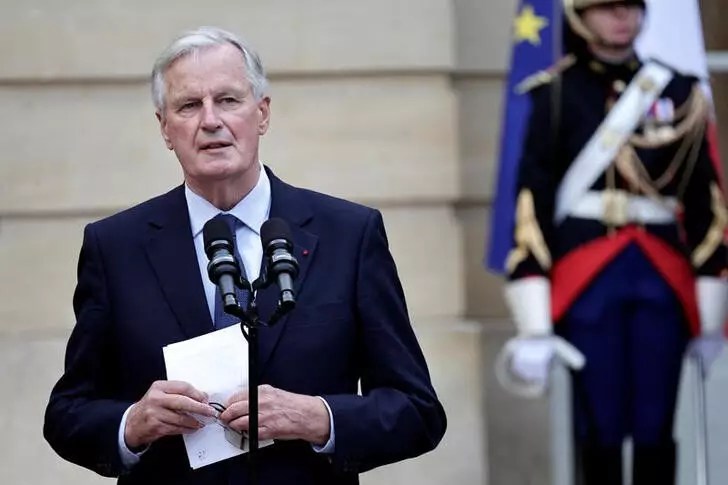French Prime Minister Michel Barnier, known for his work negotiating Brexit, now finds himself in a challenging position of overseeing a country with deep political divisions. President Emmanuel Macron’s decision to appoint the 73-year-old Barnier comes at a critical time, following a snap legislative election that resulted in a hung parliament. The appointment was crucial for Macron, who faces doubts about completing his final term until 2027.
Barnier’s new role comes with a demanding agenda, including the urgent need to navigate budget legislation with significant spending cuts through a parliament that is deeply fractured politically. Despite the challenges ahead, investors reacted positively to Barnier’s appointment, with government borrowing costs declining slightly and the euro rising. Macron’s choice reflects his belief in a center-right leaning parliament, even though a leftist alliance managed to secure the lead in the recent election.
While Barnier’s appointment has garnered support from some sectors, including Marine Le Pen’s far-right National Rally (RN), there are concerns about potential opposition from various sides. The RN has indicated that they will push for addressing key issues such as the cost of living crisis, security, and immigration. Any lack of progress on these fronts could lead to political action in the near future.
Born near Grenoble in 1951, Barnier has a long history in French politics, having served in various government positions, including foreign minister and agriculture minister. His experience extends to the European Union, where he held roles such as regional policy commissioner and internal market commissioner. During the Brexit negotiations, Barnier became a contentious figure for anti-EU groups in the UK, who viewed him as the embodiment of Brussels’ regulatory stance.
Barnier’s return to French politics after Brexit was met with mixed results, as he failed to secure the presidential candidacy for the center-right Republicans in 2021. His relationship with Macron will be closely scrutinized, as the president seeks a prime minister who can challenge him while supporting key legislative reforms. However, some critics have expressed doubts about Barnier’s willingness to confront Macron on important issues.
Barnier may also face pressure to adjust some of his previously held opinions, particularly regarding far-right ideologies. While he has been vocal in opposing anti-European sentiments, he has also acknowledged the political landscape’s changing dynamics. Barnier’s views on Macron’s political future suggest a potential shift in power dynamics within the French political landscape.
As Barnier assumes his new role as Prime Minister, the challenges ahead remain significant. Navigating a fractured parliament, addressing key societal issues, and balancing relationships within the political sphere will test his leadership abilities. Macron’s decision to appoint Barnier reflects a calculated move to maintain stability while acknowledging the need for change within the French political landscape. Barnier’s success in this role will be integral to the future direction of French politics.


Leave a Reply